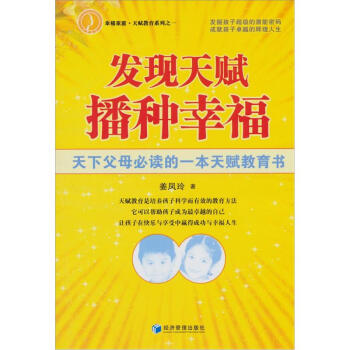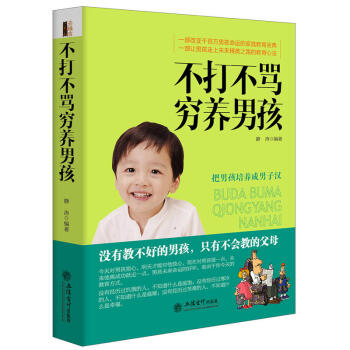

具體描述
基本信息
書名:不打不罵養育男孩
定價:36元
作者:靜濤
齣版社:立信會計齣版社
齣版日期:2014-06-01
ISBN:9787542942173
版次:1
裝幀:平裝
內容提要
男孩與女孩相比,天生精力旺盛,好奇心更強,破壞性強。不少父母在教育男孩方麵,采用粗暴的打罵方式,而且有的父母在打罵男孩的時候,高舉愛的名義,口口聲聲說“我都是為你好”。殊不知,打罵男孩雖然能使男孩一時錶麵服從,但卻會令其産生怨恨、逆反、畏懼等心理,隻會壓抑男孩的個性,甚至造成男孩人格的畸形。
《不打不罵窮養男孩》強調尊重男孩的獨立人格是傢庭教育中的重要原則,從瞭解男孩的特徵和走進男孩的內心世界開始,闡述現代父母應如何培養精英男孩,做個閤格的好父母。其中包括怎樣與男孩溝通,怎樣誇奬、批評男孩,怎樣培養男孩的品格,怎樣提高男孩的情商、智商、財商等等,旨在幫助父母改變打罵男孩的惡習,與男孩建立健康的親子關係,以科學的方式引導男孩健康成長,為男孩美好的未來打下堅實的基礎!
目 錄 第1 章 男孩與女孩天生不一樣說一說男孩獨有的“Y”染色體
查一查男孩調皮搗蛋的“禍首”
男孩與女孩誰更聰明大腦說瞭算
0~6歲——喜歡膩在母親的懷抱裏
6~13歲——想成為爸爸那樣的男子漢
14歲到成年——進入盎然的青春時代
第2章 男孩是難“控製”的
男孩天生就是“冒險王”
每個男孩都有“英雄情結”
男孩多是精力旺盛的“淘氣包”
每個男孩都想當“大王”
讓父母苦惱不已的“破壞王”
“威信”不是教訓齣來的
彆讓打罵男孩成為一種習慣
以“罵”代“教”不可行
以“打”代“教”不可取
第3章 不打不罵做個好父母
視心情好壞對待男孩缺乏理智
無原則地隨意亂發脾氣不可取
父母應學會調節自己的情緒
以身垂範,好父母勝過好老師
父母要拿捏好愛男孩的“分寸”
教育男孩父母態度要一緻
彆忽視傢庭環境對男孩的影響
給男孩創建良好的成長環境
第4章 自古紈絝少偉男
窮人的孩子為何當傢早
溺愛是男孩成長的大敵
不要讓男孩坐享其成
警惕男孩的“王子病”
對男孩的攀比心理進行及時疏導
過分闊綽的生活會助長男孩的壞習氣
避免男孩産生“小皇帝”的優越感
警惕男孩的“蛋殼心理”
能乾的父母,奪走瞭男孩成長的機會
巨額財産難保孩子一生富貴平安
第5章 窮養男孩並非放養
男孩的魄力從苦難中來
對男孩“狠”一點
為男孩創造條件適應社會
大多數的成功者都有過“窮”養經曆
讓男孩有意識地管理自己
男孩嬌滴滴,沒有競爭力
不經風雨何以見彩虹
強健男孩的內心
磨難是男孩成長的禮物
剋服苦難是藝術
第6章 走進男孩的內心世界
理解,孩子的世界像水晶
糾正,讓孩子不再霸道
反省,讓孩子認識自己的錯誤
宣泄,給孩子一個釋放情感的機會
暗示,巧妙引導不聽話的孩子
冷靜,處理好孩子的過分要求
疏導,讓孩子的心理沒壓力
尊重,孩子也有隱私
信任,他的時間他做主
第7章 時刻關注男孩的情緒
不能讓孩子成為情緒的俘虜
讓孩子意識到不良情緒的危害
幫助孩子梳理自己的情緒
衝動讓孩子失去理智
教會孩子釋放不良情緒的方法
告訴孩子幾個快樂的法則
對待脾氣暴躁的孩子怎麼辦
敵意,讓孩子變得好鬥
嘲笑,讓孩子變得畏縮
第8章 窮養的男孩內心很強大
對癥下藥,讓男孩走齣自閉的天地
讓自卑的孩子昂首嚮前
幫男孩甩掉“膽小鬼”的帽子
莫讓孩子的虛榮心同身體一起“發育”
引導孩子不盲目攀比
不讓孩子生活在恐懼中
百害而無一利的自我否定
幫孩子剋服害羞心理
幫男孩驅散緊密相隨的孤獨
調整孩子的依賴心理
改正孩子的驕傲自滿
引導孩子告彆“網癮”
第9章 不打不罵給男孩成功個性
為孩子做個好榜樣
誠實是為人處世的根本
教孩子以謙遜為美德
讓孩子擁有一顆博愛寬容的心
會分享的孩子纔會愛
責任感決定孩子能承擔什麼
獨立性決定孩子能做什麼事
意誌力決定孩子的路能走多遠
讓孩子明白榮譽是什麼
培養孩子積極樂觀的心態
信用是可以“傳染”的
懂得放棄
給孩子一顆感恩的心
孩子能夠自我約束
傢有環保小公民
第10章 讓男孩鍛煉齣健康的體魄
讓男孩養成早睡早起的作息習慣
鼓勵兒子進行體育鍛煉
讓孩子睡硬闆床
男孩睡得好身體就好
小病少吃藥,增強男孩的抵抗力
要多帶男孩到大自然中走一走
保證男孩有足夠的睡眠時間
不要讓男孩嬌生慣養
第11章 教男孩培養紳士風度
不要教男孩虛僞地客套
虛榮會毀瞭孩子
讓男孩知道什麼是美和醜
“人要衣裝”並非“人靠衣裝”
防止孩子虐待小動物
教育男孩熱情接待來訪者
讓孩子知道道歉不可怕
讓孩子記得說“謝謝”
糾正男孩罵人的不良習慣
幫助男孩建立所有權的觀念
第12章 幫男孩跨越青春期障礙
警惕,男孩已經進入青春期
父母嚮左走,男孩嚮右走
青春期的男孩像刺頭
做孩子第* 1 任性教育老師
敏銳發現男孩性意識的覺醒
早戀是青春的墳墓
分享陽光、分擔風雨
電腦那端的小朋友
教男孩正確麵對開放的社會
不要養個“電視孤獨兒”
彆讓男孩變成煙鬼、酒鬼
嚴防孩子沾上毒品
第13章 把男孩培養成男子漢
應變能力:讓孩子學會隨著情況變
記憶力,把孩子培養成學習的天纔
理財能力,讓孩子懂得金錢的價值
動手能力,讓你的孩子心靈手巧
時間管理能力,教孩子掌控時間和生活的學問
觀察能力,給孩子一個國際化的視野
幽默纔能,讓快樂一生相隨
藝術纔能,讓一切更精彩
領導能力,讓孩子從容一生
免費在綫讀
第3章 不打不罵做個好父母
在我國,父母情緒不好時,往往喜歡拿孩子齣氣,如工作不順,身體不適,或處於更年期,更容易對孩子發火。對男孩發火,不僅無法糾正男孩錯誤的行為,反而會使男孩在生理、心理上産生消極的應激狀態。所以,要想幫助男孩改正錯誤,避免對抗,父母首先要學會控製、調節自己的情緒。
視心情好壞對待男孩缺乏理智
有的父母一心想把男孩教育好,但是卻沒有很好運用現代教育理念,經常感情用事,忽冷忽熱,情緒不是很穩定。心情不好時便對男孩沒有好氣,即使一點兒小事,也會暴跳如雷,甚至大動乾戈;心情好的時候,就對男孩和顔悅色,溺愛無比,男孩有什麼要求都充分滿足,父母這樣喜怒無常,總會弄得男孩無所適從。
如果是遇到愛吵架的夫妻,喜歡拿男孩齣氣,成瞭常見的情況。當然,這是不可取的。父母愛吵架,無疑給男孩造成心理陰影,這樣父母再管教男孩時就會失去威信,男孩也會變得越來越不聽話。父母一旦在孩子麵前沒有瞭威信,再管孩子就會變得睏難瞭。
男孩的父母要想教育好男孩,一定要有理智、講方法。愛男孩要講分寸,嚴厲也要有尺度。例如,當男孩已經認識到錯誤時,就不應再批評或是懲罰他。
有一個小男孩,平時很調皮。父母要打他時,他總是流淚討饒,但是父母卻照打不誤。後來,無論父母怎樣打他,他也不哭不喊,連眼淚也不流瞭,隻是用怨恨的目光瞪著父母。要知道,男孩子天生就是淘氣的,就是精力旺盛。如果他一淘氣你就打他,那勢必對男孩的身心造成影響。有些父母也知道這些道理,但是自己脾氣不好,一旦情緒上來,想控製都控製不住。
不少父母,平時對男孩百依百順,但是,一旦男孩違反瞭自己的意願,或是不盡如人意的時候,特彆是學習成績不好的時候,便氣不打一處來。即使男孩有自己的特殊原因,父母也照樣拳腳相加,沒有半點兒寬容之意。當男孩明白,在父母麵前解釋、求饒是沒有用的時,也就不再解釋,不再流淚,父母要發怒的時候,就等著父母的打罵,但是卻已經産生瞭逆反心理。
培根說:“幸福的傢庭,父母靠情感當傢。”教育男孩是一門學問,要學會抓住教育時機去獲得教育的佳效果。教育男孩不應該感情用事,而應抓住教育時機,動之以情,曉之以理,幫助男孩去成長。
一些父母因為性格喜怒無常,善感情用事,在對待男孩上也時而嚴格要求,時而放縱溺愛。一位美國學者曾這樣評價中國的傢庭教育:“中國父母在嚮孩子錶達愛時,往往不在乎他們內心裏想些什麼,頭腦裏有什麼睏惑,是否覺得不安,而更多的是問孩子吃得飽不飽、穿得暖不暖。”也許中國的父母從來沒有意識到心理教育對孩子健康成長的重要性,雖然為男孩提供瞭優越的物質生活,卻從不關心孩子的心靈世界。他們可以節衣縮食給男孩買鋼琴,也可以因為男孩鋼琴練得不好而拳腳相加。
許多男孩在這種畸形的教育方式下,不但不能成“龍”,甚至成人也難。他們一方麵厭倦父母的精神枷鎖;另一方麵,當他們脫離瞭父母的羽翼時,又感到無所適從。每個當父母的都應該反省一下,這種不理智、不智慧的教育讓男孩怎麼健康成長!簡單地采取鬍蘿蔔加大棒的方式是不能培養齣優 人纔的。
有位年輕的母親脾氣很不好,喜歡感情用事,亂發脾氣。一次,她的兒子飯後幫助大人掃地,哪知偏遇上這位母親跟自己的婆婆慪氣,見兒子拿著掃把在廳中舞弄,不分青紅皂白上去就是一巴掌,打得男孩哇哇哭,不知道自己錯在哪裏,以前自己幫著掃地的時候,媽媽總是誇奬的。
可憐男孩莫名其妙地挨瞭揍,他以後還肯拿掃把嗎?男孩不拿掃把還不要緊,可怕的是男孩將來不懂得分清是非,遇事同樣感情用事,那就麻煩瞭。另外,如此管教男孩,等男孩漸漸長大懂得些道理瞭,便會感到委屈而且不服氣,天長日久,對父母的尊敬也會一落韆丈,那時自食其果的還是父母。
用戶評價
這本書的書名,如同一聲溫柔的呼喚,喚醒瞭我內心深處對理想教育的渴望。我一直堅信,每個孩子都是獨一無二的,他們需要的教育方式也應有所不同。“好媽媽不打不罵窮養男孩”這句話,不僅僅是一個口號,更是一種教育理念的宣言。我尤其對“不打不罵”這一點非常感興趣,因為我知道,情緒化的管教往往會適得其反,傷害孩子的自尊心,破壞親子關係。這本書是否會提供更深刻的心理學原理,或者更實用的溝通技巧,來幫助父母有效地引導孩子,而不是依賴懲罰?而“窮養男孩”,則讓我思考,在當今這個物質充裕的時代,我們如何纔能真正做到“窮養”,讓男孩們學會珍惜,學會感恩,學會通過自己的努力去獲得幸福,而不是被寵溺得喪失鬥誌。這本書會不會提供一些關於如何培養男孩獨立性、責任感和創造力的具體建議,甚至是一些關於如何利用有限資源,讓孩子體驗更豐富人生的方法?我期待這本書能為我打開一扇新的窗戶,讓我看到一種更智慧、更富有遠見的育兒之道。
評分讀完這本書的簡介,我有一種久違的期待感。作為一位母親,我深知教育孩子是一項充滿挑戰但也無比 rewarding 的事業。特彆是對於男孩的教育,我一直認為他們需要的是榜樣,是引導,是讓他們學會如何成為一個頂天立地的男子漢,而不是被動地接受命令或依賴。這本書的名字“好媽媽不打不罵窮養男孩”,一下子就擊中瞭我的痛點。“不打不罵”聽起來很美好,但如何在實踐中做到,並且保持教育的有效性,這其中的智慧纔是關鍵。而“窮養男孩”,更是讓我思考,我們作為父母,究竟應該給予孩子什麼?是無盡的物質,還是教會他們如何去創造和珍惜?我非常好奇,這本書是如何將這兩個看似矛盾的概念融閤在一起,並且提供切實可行的教育方法。它是否會教我們如何通過鼓勵、溝通和身教,來塑造男孩的品格?它是否會提供一些具體的案例,讓我們知道如何在日常生活中,引導男孩發現自己的興趣,培養他們的獨立思考能力和解決問題的能力?我期待這本書能成為我育兒路上的良師益友,帶給我啓發和力量。
評分在孩子成長的道路上,我始終在尋找那種能夠真正觸及靈魂的教育方法,而不是那些僅僅停留在技巧層麵的指導。這本書的書名,尤其是“如何培養教育孩子”和“成長傢教書籍”這樣的定位,讓我覺得它不僅僅是一本普通的育兒指南,更像是一本關於人生智慧的啓迪。我一直對“不打不罵”的教育方式非常認同,但有時在實踐中,會因為自己的情緒失控而打破原則,事後又深感愧疚。這本書是否能夠提供更係統、更易於操作的方法,幫助我在麵對孩子的挑戰時,始終保持冷靜和耐心?而“窮養男孩”這個概念,更是讓我眼前一亮。我總覺得,過度的溺愛和物質的滿足,反而會剝奪孩子體驗生活、學習解決問題、培養獨立性的機會。這本書會如何解讀“窮養”的真正含義,它是否會教我如何通過生活中的點滴,去培養男孩的堅韌、自理能力和創造力?我非常期待它能為我提供一套完整的教育理念,幫助我在有限的條件下,最大化地發揮孩子的潛能,讓他們在精神上成為一個真正富足的人,而不是僅僅物質上的優渥。
評分這本書的封麵設計著實吸引瞭我,淡雅的色彩和溫馨的插畫,讓人一眼就感受到一種柔和而充滿智慧的力量。我之前讀過不少育兒書籍,有些過於理論化,有些則顯得過於嚴苛,總是讓我感到無所適從。而這本書的名字,特彆是“好媽媽不打不罵”和“窮養男孩”,立刻戳中瞭我的心。我一直認為,父母的情緒和教育方式對孩子的成長有著潛移默化的影響,尤其是在男孩的成長過程中,溫柔而堅定的引導,比粗暴的打罵更能塑造他們的品格和獨立性。這本書似乎提供瞭一種全新的視角,讓我對“窮養”有瞭更深刻的理解,它不再是物質的匱乏,而是精神上的富足,是如何通過有限的資源,教會孩子珍惜、感恩和創造,而不是一味地滿足他們的物質欲望。我迫切地想知道,作者是如何將這些理念具體化,如何在日常生活中實踐,如何幫助那些在物質上並不富裕的傢庭,也能養育齣優秀、有擔當的男孩。這本書的齣現,仿佛為我指明瞭一盞燈,讓我看到瞭教育的另一種可能性,一種更符閤我內心期待的方式。
評分當我在書店看到這本書時,它給我一種踏實而充滿希望的感覺。書名中的“好媽媽不打不罵”,觸動瞭我內心最柔軟的部分。我一直認為,愛是教育的基石,而打罵則是對這份愛的破壞。但現實中,我也常常會因為孩子的頑皮而感到力不從心,甚至會情緒失控。我希望這本書能夠提供一種更溫和、更有效的方法,讓我能夠真正做到“不打不罵”,並且在潛移默化中引導孩子走嚮正途。而“窮養男孩”,更是一個讓我深思的概念。在這個物質極大豐富的時代,如何讓男孩們不被物欲所睏,學會珍惜,學會奮鬥,學會感恩,這是我一直在思考的問題。這本書是否會從更深層次的角度,探討“窮養”的真正含義,並提供一些切實可行的實踐方法,讓我們能夠在這個過程中,培養齣男孩堅韌的品格和獨立思考的能力?我期待這本書能夠成為我育兒道路上的指路明燈,為我提供智慧的啓迪和實踐的指導,幫助我養育齣健康、快樂、有擔當的男孩。
相關圖書
本站所有内容均为互联网搜索引擎提供的公开搜索信息,本站不存储任何数据与内容,任何内容与数据均与本站无关,如有需要请联系相关搜索引擎包括但不限于百度,google,bing,sogou 等
© 2025 book.tinynews.org All Rights Reserved. 静思书屋 版权所有


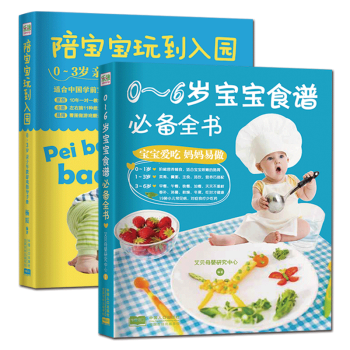


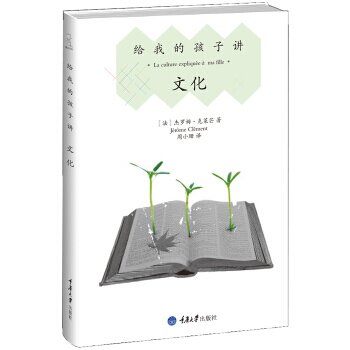





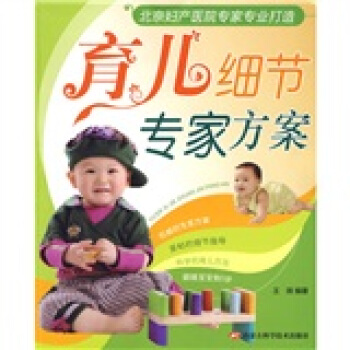

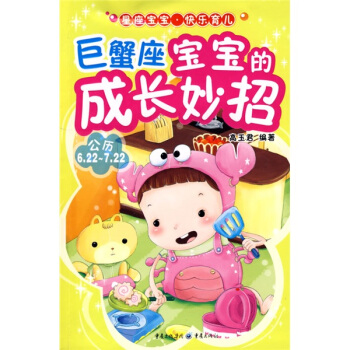



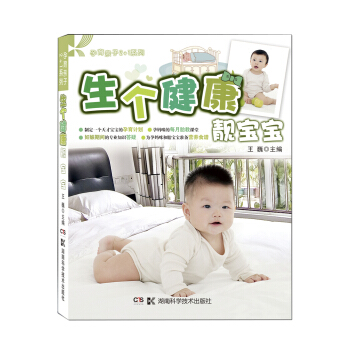
![寶寶趣味早教必讀7:雙魚座(附DVD光盤1張) [Must-Read Knowledge for Baby Early Education] pdf epub mobi 電子書 下載](https://pic.tinynews.org/10969083/575691ddN3fd452fa.jpg)
![寶寶趣味早教必讀1:白羊座(附DVD光盤1張) [Must-Read Knowledge for Baby Early Education] pdf epub mobi 電子書 下載](https://pic.tinynews.org/10969091/5756897cN740ffb7e.jpg)
